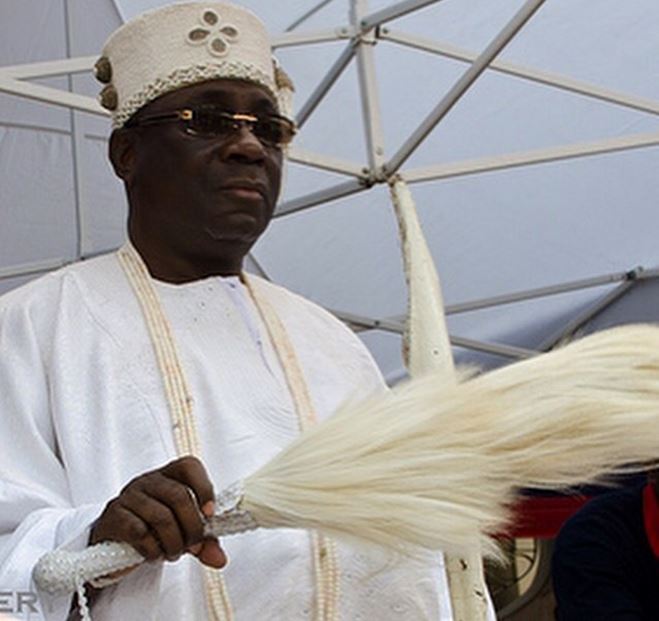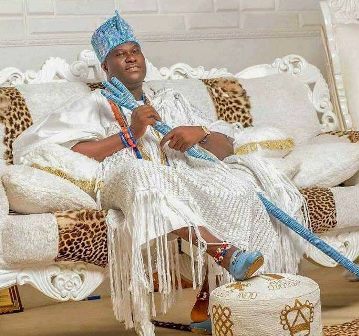See Traditional Rulers Salaries in Nigeria (2026)
Nigeria is a country with over 500 tribes and ethnic groups, each having their own traditional rulers and kings. These traditional rulers, who hold positions of power and honor, are also paid salaries like other government officials. However, information about their earnings is limited. In this article, we will provide an overview of the estimated salaries of traditional rulers in Nigeria this 2026.
KEY TAKEAWAYS
- Salaries of traditional rulers in Nigeria are comparable to those of government officials.
- The salaries of traditional rulers vary depending on their rank and the areas they rule.
- Emirs are the highest-paid traditional rulers in Nigeria.
- Traditional rulers often accumulate significant wealth over time due to their positions of power and influence.
- Public perception regarding their salaries is divided.

DIFFERENT KINGS AND TRADITIONAL RULERS IN NIGERIA
There are over 50 first class kings in Nigeria within the 500 tribes and ethnic groups in the country. In fact, each of these communities has its own unique traditional rulers and kings who play significant roles in preserving their cultural heritage and maintaining social order. These traditional rulers hold prestigious positions and are recognized as custodians of tradition and custodians of the people’s welfare.
Traditional rulers in Nigeria are often referred to by various titles depending on the region and ethnic group they belong to. In the northern Muslim states, the topmost traditional ruler is known as the Emir, along with other titles such as Sarki, Shehu, Mai, Etsu, and Lamido. In the Middle Belt region, traditional rulers are referred to as Aku Uka, Agwam, Tiv Tor, and Attah. In the southern part of the country, titles such as Oba, Igwe, Eze, and Obong are commonly used. Each of these titles and positions carries its own unique responsibilities and significance within the community.
It is important to note that traditional rulership is hereditary in some communities, while in others, it is based on specific criteria such as lineage, merit, or election. The diverse range of traditional rulers in Nigeria reflects the country’s multicultural fabric and serves as a testament to the rich history and traditions that exist within its borders.
NOTABLE TRADITIONAL RULERS IN NIGERIA
- Emirs (Northern Muslim states)
- Obas (Yoruba ethnic group)
- Igwes (Igbo ethnic group)
- Ezes (Igbo ethnic group)
- Obongs (Efik and Ibibio ethnic groups)
- Ovies (Urhobo ethnic group)
- Amanyanabos (Edo ethnic group)
- Tors (Tiv ethnic group)
SALARIES OF KINGS/TRADITIONAL RULERS IN NIGERIA
The salaries of traditional rulers in Nigeria vary depending on their rank and the area they rule. Emirs, who have authority over large populations and territories, are the highest-paid traditional rulers. On average, Emirs earn an estimated minimum salary of around ₦2 million, excluding allowances and personal earnings.
Obas in Nigeria, who are traditional rulers in the Yoruba kingdom, have a salary range of ₦700,000 to ₦3 million. In the southeastern part of the country, Obis and Ezes earn an estimated salary range of ₦500,000 to ₦3 million. Other traditional rulers such as Obongs, Ovies, Amanyanabos, and Tors earn between ₦300,000 to ₦2 million as salary.
It is important to note that these figures are estimations and may vary depending on various factors. The salaries of traditional rulers are influenced by their rank, the size of the area they rule, the population under their authority, and their cultural significance. Traditional rulers, with their positions of power and influence, play significant roles in their communities and are compensated accordingly.
FACTORS AFFECTING TRADITIONAL RULERS’ SALARIES
Several factors influence the salaries of traditional rulers in Nigeria. These factors take into account the scope of their rule, the size of the population under their authority, their cultural significance, and the level of influence they hold over local affairs. Emirs, for example, who govern larger areas and command authority over dominant groups of people, tend to receive higher salaries compared to traditional rulers with smaller territories.
The size of the area a traditional ruler presides over is an important determinant of their salary. The larger the territory, the more responsibilities and administrative tasks they have, resulting in a higher salary. Similarly, the population under their rule plays a role in determining their compensation. Traditional rulers with a larger population require more resources to effectively govern and provide for their subjects, hence warranting a higher salary.
Cultural significance and influence also contribute to the salary levels of traditional rulers. Traditional rulers who hold a significant historical and cultural position in their communities or regions often receive higher compensation. This is because their roles extend beyond administrative duties and involve preserving cultural traditions, mediating disputes, and exerting influence over important decisions that impact their communities.
By considering these factors, traditional rulers salaries in Nigeria can be determined in a way that reflects the importance and responsibilities associated with their positions. However, it is important to note that the exact salary structures and allowances may vary across different regions and ethnic groups, as well as over time, based on government policies and budget allocations.
WEALTH ACCUMULATION OF TRADITIONAL RULERS IN NIGERIA
Traditional rulers in Nigeria often enjoy significant wealth due to their positions of power and influence. They have access to resources and opportunities for accumulating assets such as land, businesses, and investments. Additionally, traditional rulers receive contributions and gifts from their subjects, which further contributes to their financial status.
Through their positions, traditional rulers have the ability to allocate resources and engage in business ventures that can generate substantial income. They can invest in various sectors such as real estate, agriculture, and oil, leveraging their connections and influence for financial gains. This, coupled with the contributions and gifts they receive, allows them to accumulate wealth over time.
Furthermore, traditional rulers often have access to government funding and grants for developmental projects within their communities. These funds can be utilized to improve infrastructure, promote economic growth, and attract investments. By effectively managing these resources, traditional rulers can contribute to the development of their regions and enhance their own financial status.
FACTORS CONTRIBUTING TO WEALTH ACCUMULATION
- Access to resources and opportunities for asset accumulation
- Contributions and gifts from subjects
- Connections and influence for business ventures
- Access to government funding for developmental projects
HISTORICAL AND CULTURAL SIGNIFICANCE OF TRADITIONAL RULERS

Ooni of Ife on his throne
Traditional rulers in Nigeria hold a significant place in the country’s history and culture. They derive their titles from leaders of independent states or communities that existed before the formation of modern-day Nigeria. These traditional rulers have played a crucial role in shaping the cultural landscape of the country and preserving its rich heritage.
Throughout history, traditional rulers have served as custodians of ancestral knowledge, customs, and traditions. They have acted as mediators, resolving disputes and maintaining peace within their communities. The wisdom and experience of traditional rulers have been relied upon to guide their people through times of social, economic, and political change.
Furthermore, traditional rulers have been instrumental in passing down cultural practices and values from one generation to another. They have played an active role in ceremonies, festivals, and rituals that celebrate the history and traditions of their communities. Their presence at such events reinforces cultural identity and fosters a sense of unity and pride among the people.
BENEFITS AND PRIVILEGES OF TRADITIONAL RULERS
In addition to their salaries, the most powerful kings in Nigeria enjoy various benefits and privileges that come with their esteemed positions. These perks are designed to support their roles as custodians of culture and leaders of their communities.
OFFICIAL VEHICLES
Traditional rulers are often provided with official vehicles, which serve as a symbol of their authority and allow them to carry out their duties effectively. These vehicles are typically maintained by the state government or local authorities. See the richest yoruba kings.
STAFF
To assist them in their administrative and ceremonial duties, traditional rulers are assigned a team of staff members who help manage their affairs. These staff members may include personal assistants, secretaries, drivers, and other support personnel.
HOUSING ALLOWANCES
To ensure that traditional rulers have suitable accommodation befitting their status, they are often granted housing allowances. This allows them to reside in comfortable residences that reflect their role as community leaders.
CEREMONIAL ALLOWANCES
Traditional rulers play an important role in the cultural fabric of Nigerian society. To support their participation in various ceremonial events and functions, they receive allowances specifically designated for these activities. This enables them to fully engage with their communities during important cultural celebrations.
In addition to these benefits and privileges, traditional rulers are often invited to important events and serve as cultural ambassadors for their communities. Their presence at these gatherings helps preserve and promote the cultural heritage of Nigeria.
It is also important to note that the specific benefits and privileges granted to traditional rulers may vary depending on the region and the resources available to the government or local authorities. However, these perks serve to recognize the important role that traditional rulers play in Nigerian society and acknowledge their contributions to the preservation of cultural traditions.
PUBLIC PERCEPTION OF TRADITIONAL RULERS’ SALARIES
The salaries of traditional rulers in Nigeria have sparked debate among the public, with varying opinions on the appropriateness of their pay. Some individuals argue that the salaries are justified due to the cultural heritage and influence of traditional rulers. They believe that these leaders play a crucial role in preserving cultural traditions and values, and their salaries reflect the respect and honor they command.
On the other hand, there are those who hold the view that the funds allocated to traditional rulers’ salaries could be better utilized to address pressing socio-economic issues in the country. They question the necessity of high salaries for traditional rulers, considering that they do not hold formal political power and their roles are often ceremonial in nature.
Public opinion plays a significant role in shaping the discourse around traditional rulers’ salaries. As Nigeria continues to evolve socially, economically, and politically, the conversation around the appropriateness of these salaries is likely to persist, reflecting the ongoing dialogue about the role of traditional rulers in contemporary society.
CONCLUSION
In conclusion, the salaries of traditional rulers in Nigeria are determined by various factors such as their rank and the size of the area they rule. Emirs, who govern larger territories with significant populations, tend to receive higher salaries compared to rulers with smaller domains. The estimated minimum salary for an Emir is around ₦2 million, while other traditional rulers have a salary range from ₦300,000 to ₦3 million.
Traditional rulers in Nigeria not only receive salaries but also enjoy additional benefits and privileges. These include official vehicles, housing allowances, and allowances for ceremonial duties. They also play an essential role in preserving cultural traditions and values, contributing to their historical and cultural significance.
However, the issue of traditional rulers’ salaries is a subject of public debate and divided opinion. Some argue that the salaries are justified given their cultural heritage and influence, while others believe that the funds could be better utilized for societal needs. The public perception varies, reflecting differing viewpoints within society.